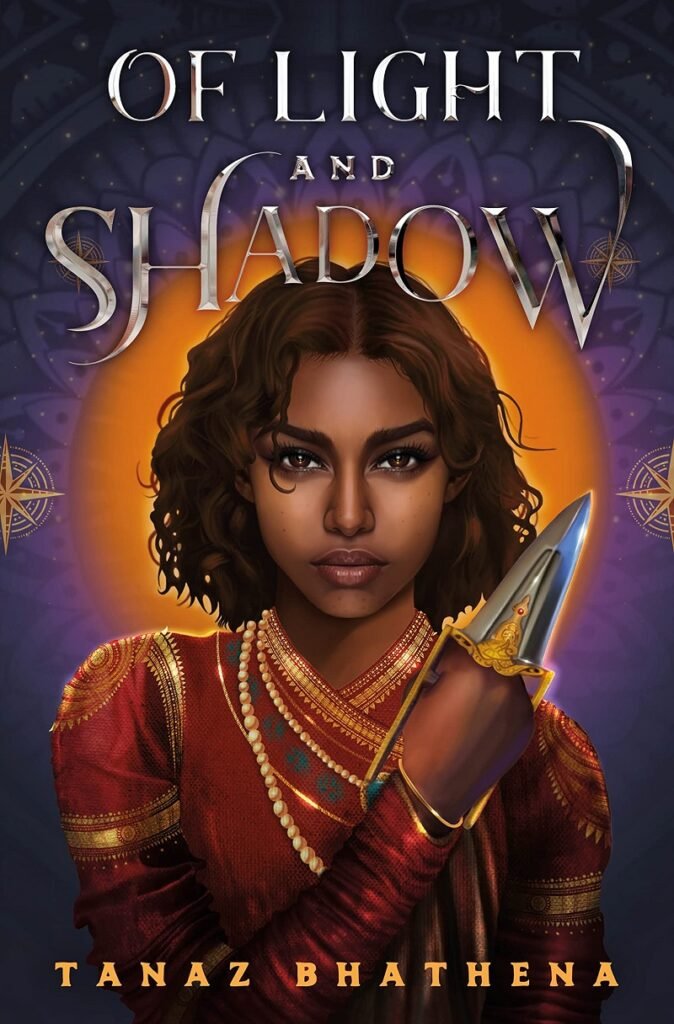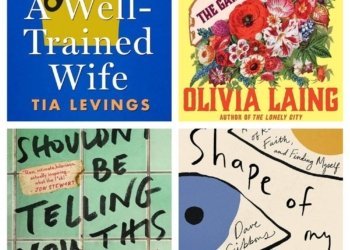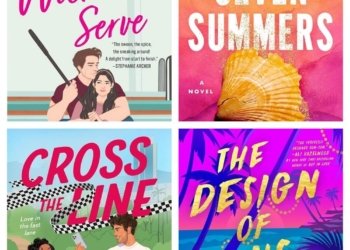No products in the cart.
A Conversation with Tanaz Bhathena, a Romance, Fantasy Author
Tanaz Bhathena, author of "Of Light and Shadow" is an award-winning Zoroastrian author of contemporary and fantasy fiction.
69
SHARES946
VIEWSTanaz Bhathena is an award-winning Zoroastrian author of contemporary and fantasy fiction. Born in India and raised in Saudi Arabia and Canada, Tanaz lives in Mississauga, Ontario, with her family. Her books include Of Light and Shadow, Hunted by the Sky, which won the White Pine Award and the Bapsi Sidhwa Literary Prize, and The Beauty of the Moment, which won the Nautilus Gold Award for Young Adult Fiction. Her acclaimed debut, A Girl Like That, was named a Best Book of the Year by numerous outlets including The Globe and Mail, Seventeen, and The Times of India. Her short stories have appeared in various publications including The Hindu, Blackbird, Witness, and Room.
Let’s get started with a quick rapid fire.

Q1. If you could be transformed into one animal, which one would you choose?
A flying horse.
Q2. What time do you usually go to bed at night?
9 pm.
Q3. Are you more of an introvert or an extrovert?
Introvert.
Q4. Who is your favorite Disney character?
Belle.
Q5. Would you rather travel to the past or to the future?
The past.
Q6. What object do you misplace or lose the most?
I’m pretty good with my belongings.
Q7. What is the kindest thing someone ever did for you?
An author friend gave me a ton of advice in the early days of my career. I would have been lost without it.
Q8. Learn by watching or learn by doing?
Learn by doing.
Q9. Expensive presents or homemade presents?
Depends on the present. But love is a strange thing. Fickle, fussy, older than the gods, more unpredictable than magic itself.Tanaz Bhathena, Of Light and Shadow
Q10. What is one missed opportunity that you wish you could have a second chance at?
Visiting the Getty Museum in LA and the MET Museum in NY.
Q11. What is not a big deal to most people but is torture to you?
Dating.
It’s time for a more detailed conversation, Tanaz.
You’ve answered our rapid fire so well, Tanaz. Now, it’s time for our readers to know more about the person behind the book.
Q. Tell us something about yourself that’s going to make us wonder more about you.
Before I started writing books, I studied the piano for 6 years and gave exams for the Royal Conservatory of Music. Before that, I had a brief stint as a failed cartoonist and failed poet. My cures for boredom include: researching for new books, visiting new cities, or attempting extreme sports like bungee jumping or ziplining.
Q. Well, that will keep you in our thoughts. So, what books did you grow up reading?
I grew up reading a lot of books by Enid Blyton, RL Stine and Francine Pascal. I used to love the Faraway Tree and Wishing Chair series, Fear Street Sagas, and Sweet Valley High. When I reached my teens, I moved on to romance novels by Elizabeth Lowell, and literary fiction by Bapsi Sidhwa, Rohinton Mistry, and Arundhati Roy.
Q. Interesting. What, to you, are the most important elements of good writing?
The combination of beautiful sentences, memorable characters and a gripping story. It may sound simple, but it’s very difficult to find all three in one book—even more so when you’re attempting to write such a book.
Q. Do you hide any secrets in your books that only a few people will find?
All the time—thought it’s funny when the people who should be able to find the secrets don’t! This happened for my second book, THE BEAUTY OF THE MOMENT. I’d secretly written one of my best friends into the book as a character and she totally misidentified herself, LOL! When they don’t give us our birthright, we steal it.Tanaz Bhathena, Of Light and Shadow
Q. Now comes the most anticipated question that every author must answer. How do you process and deal with negative book reviews?
Negative reviews remind me of 2 things: 1) No book is perfect. 2) People are going to notice the imperfections. I’m at a stage now in my career where I can read a negative review and make note of things I can improve on in future book and brush aside critiques I disagree with. Ultimately, no book is universally popular and people who dislike my books are free to read others—or write their own.
Q. What comes first for you — the plot or the characters — and why?
Typically, the character comes first as characters are a reader’s window into the world and the story. That said, for my newest book, OF LIGHT AND SHADOW, I got the idea for the plot first—a story about bandits fighting for justice in a land being drained of magic.
Q. How do you develop your plot and characters?
I’ll usually write a brief one-page summary of the book to get an idea of the story and then begin the first chapter to get a sense of the character’s voice. Then, I’ll outline a few chapters at a time and write them. I can never outline a book in entirety before beginning a project. Both the plot and characters take shape after multiple drafts; a first draft is merely the skeleton of what the book is supposed to be.

Q. What does literary success look like to you?
It has been a variety of things over the years: getting awards, hitting a bestseller list overseas, earning out my advance for a book, being able to sell more books. While I’ve never been a commercially successful author (I still pay the bills with a day job in an export company), these days, I worry less about what’s trending on the market and focus more on writing books I personally enjoy reading.
Q. Let’s talk about your book. Tell us about it. No major spoilers.
OF LIGHT AND SHADOW is a fantasy romance set in a world inspired by the badlands of 17th century India. The story is about a teenage bandit queen named Roshan who is fighting corruption in her province and a prince named Navin who has no idea about the corruption—until Roshan kidnaps him!
Q. What part of the book did you have the hardest time writing?
For OF LIGHT AND SHADOW, it was figuring out Navin and Roshan’s character arcs and motivations and also writing a convincing enemies-to-lovers story that wasn’t insta-love. It was tricky and I had to rewrite a good portion of the book (nearly 70%) to get to a point where I was satisfied.
Q. Would you and your main character get along?
If she doesn’t kill me, then yes, sure! (Just kidding.) I’d be far too fascinated by Roshan and her healing magic to ever say a word to her. I wrote her partly drawing reference from India’s bandit queen Phoolan Devi, whom I’ve always found awe-inspiring—a woman who started off as a bandit, went to prison, and then became a politician.
Q. What are the essential characteristics of a hero you can root for?
This is such a great question! For me, the difference between a hero and a villain isn’t the lack of flaws—but simply that a hero recognizes their flaws and fights to overcome them, usually for the benefit of others, while villains don’t. I often think about this analogy where Roshan from OF LIGHT AND SHADOW is concerned—she’s not a character I would call a role model. But is she a hero? Absolutely.
Q. Let’s talk about the process of writing. When you’re writing an emotional or difficult scene, how do you set the mood?
When I’m writing a difficult or emotional scene, I put myself in the shoes of my character. I try to think of how I would react in the same situation and let myself feel the character’s rage and embarrassment and fear. I think this is a point where you need to allow characters to be messy, even unlikable. Ultimately, I know this will also make them more human and easier for readers to empathize with.
Q. What was your hardest scene to write?
Action scenes are always tricky writing, mostly because they have to make sense—even when magic is in play. For all of my fantasy books, I watched a ton of fighting and martial arts videos to get an idea of how to position my characters: what would result in an escape and what wouldn’t.
Q. It’s been fun. Now, before we wrap this up, do you have any suggestions to help me become a better writer? If so, what are they?
Keep reading and do so widely. Learn from authors in and outside your genres and comfort zone. Also, live your life. The books that resonate the most with us are ultimately stories about people living their daily lives, their hopes and fears and dreams—even if the setting is in outer space.
Related Posts
A Conversation with Nina Schuyler, a Short Stories Author
Nina Schuyler teaches creative writing at Stanford Continuing Studies, The Writing Salon, and for the independent bookstore, Book Passage. She...
10 Most Anticipated Nonfiction and Memoirs of Summer 2024
There's a glimpse of long, languid days ahead, with the sun warming our faces already. And new summer novels are...
10 Must-Read Books of Summer 2024
Summer is here, so those who are seeking for something to read indoors, at the pool, or on the beach are...
8 Most Anticipated Romance Novels of Summer 2024
Who says romance is reserved for Valentine's Day? Love stories are a treat to be savored year-round. Do you yearn...
About Us

Trenzle
Where Trends are made and discovered
Trenzle is your official source of discovering the latest people, work, and ideas that deserve to trend. Discover Authors and their books, Creators and their work, People and their opinions, and Stories from around the globe.
Learn more
Latest Posts
10 Best AI Tools You Should Use in 2024
July 20, 2024
Categories
© 2023 Trenzle - Online Author News & Magazine









